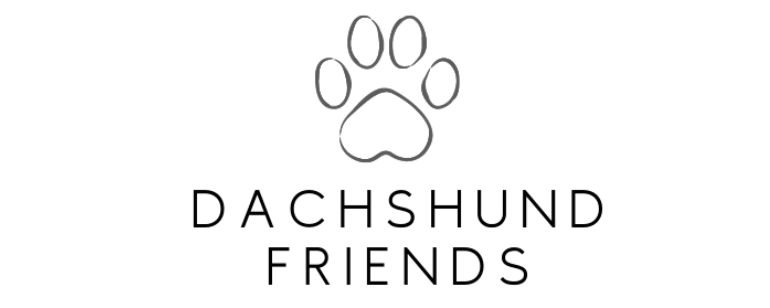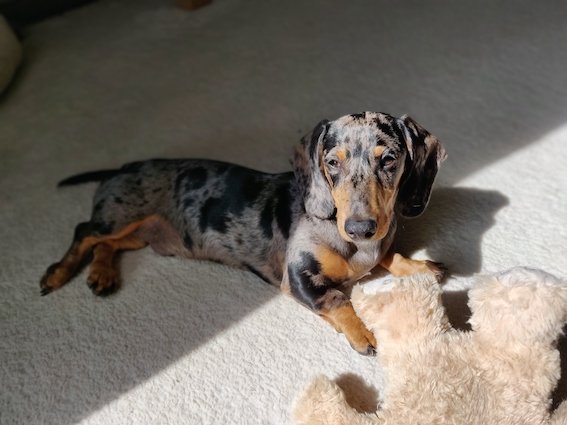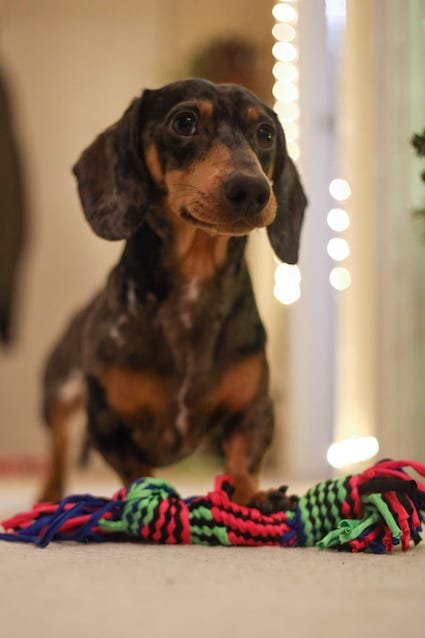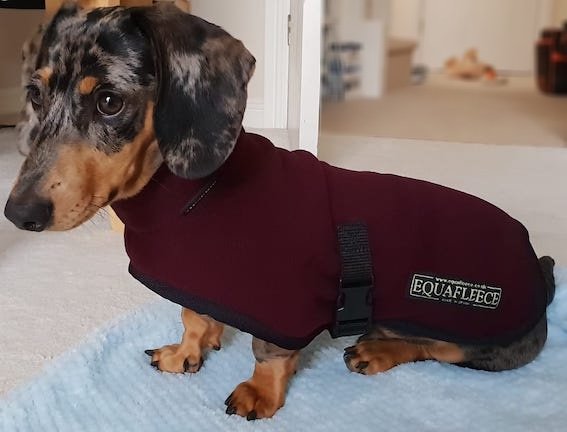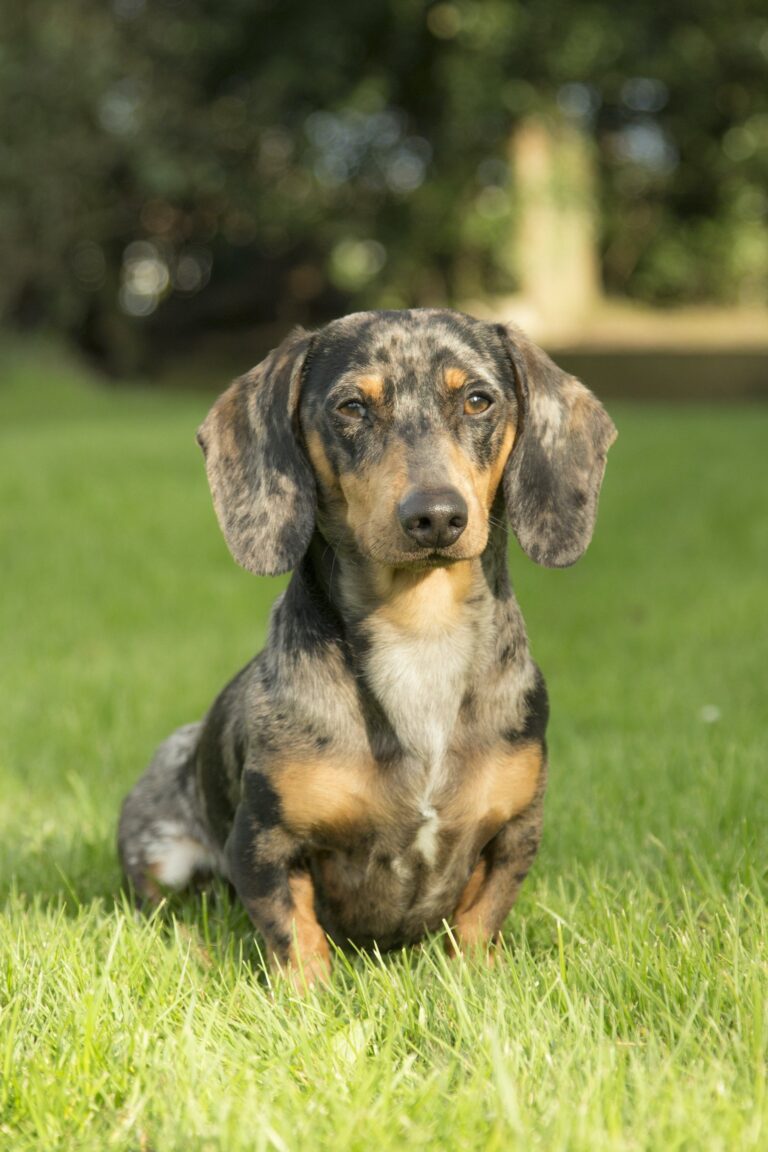How To Socialise A Dachshund Puppy
Socialising a dachshund puppy is a crucial aspect of their development and helps them grow into well-adjusted, confident, and friendly adult dogs. This was one of the areas that we were most concerned to get right with our dachshund boy, as it is so much easier to set behaviours when they are young than it is to fix problems when they are adults. Based on our experience, here are some tips on how to socialise your dachshund puppy:
Start Socialising Your Puppy Early
It’s a good idea to begin socialisation as early as possible, while the puppy is still young, with the critical period of socialisation time being between 8 and 12 weeks of age.
This includes not only socialising the puppy with other dogs (which should only be done after they are fully vaccinated for their safety) but also getting them used to new things they will experience in the outside world. If you are getting your dachshund puppy from a breeder, you should ask them questions about how they have been socialised or exposed to new sounds and stimuli prior to 8 weeks, as early exposure to new things will make them less likely to have behavioural issues later down the line.
For example, when we were getting our dachshund puppy, the litter was being brought up in a busy family household, with regular exposure to sounds such as the washing machine and vacuum cleaner which helped to get him used to different household noises he would come to experience in his new home.
Meeting New People
Allow your dachshund puppy to meet and interact with different people of various ages and genders, as soon as you can. Getting them used to meeting people in different environments can help too, including bringing people into the house and meeting outdoors on neutral territory.
When introducing your puppy to new people, it can be a good idea to ask them to offer treats or play with the puppy. This creates positive associations with meeting new people. Encouraging gentle and positive interactions can help to improve your puppy’s response to being introduced to strangers. This is especially important, for example, if you need to have people in the house regularly, to visit or to work on the property.
Meeting Other Dogs
Once your puppy is cleared for their first on lead walks after their vaccinations, it is then safe to start introducing your puppy to other dogs in controlled environments. Consider enrolling in puppy classes as a great way to train your puppy and get them used to being around other dogs – unfortunately for us, local puppy classes were full when we got our boy, but hearing from friends that had used these services, it is definitely worth thinking about.
Another option is playdates with well-behaved dogs that you know well, for example dogs that belong to your family or friends. Allowing your puppy to play with other dogs can build confidence, but it’s always best to supervise the interactions to ensure safety. Avoid situations where the puppy might feel overwhelmed.
Handling and Grooming
In addition to socialising your puppy with other dogs and other people, it’s really important to get your puppy used to being handled, including grooming activities such as brushing, nail trimming, and ear cleaning. This helps prevent fear or anxiety during routine care.
It can also help if you need to bring your puppy to the vets, if they get sick or simply for routine appointments. Even with all of this, we have found our dachshund can still get quite fearful of visiting the vets (including one memorable occasion where he went to the toilet in the waiting room!) so getting them used to being handled by strange people earlier on in life can reduce stress and fear.
Exposure to Various Environments & Desensitisation
Take your puppy to different environments such as parks, busy streets, markets, and various indoor settings can also help gradually expose them to different sounds, sights, and smells, which in turn can help them become more confident and sociable adult dogs.
We have previously touched on this topic when discussing how to deal with firework season when you have a dachshund, but gradually exposing your dachshund to potentially frightening stimuli (e.g., loud noises, strange objects) in a controlled and positive manner to desensitise them can also help reduce fear and anxiety.
Positive Socialisation Experiences & Consistency
Exposing your puppy to a variety of positive experiences, people, places, and situations can really help, but making sure these experiences are enjoyable for the puppy is key. Use positive reinforcement techniques, such as treats and praise, to reward your puppy for calm and appropriate behaviour during socialisation experiences.
Like with any sort of training for your dachshund, consistency with your socialisation efforts is important to ensure you see the results you need. Regular exposure to new experiences and people is key to reinforcing positive behaviour.
However, it is so important to always pay attention to your puppy’s body language. If they show signs of fear or stress, slow down and allow them to socialise gradually. Socialisation needs to be a positive and enjoyable experience for your dachshund puppy. If you encounter any challenges, consider seeking guidance from a professional dog trainer or behaviourist.
